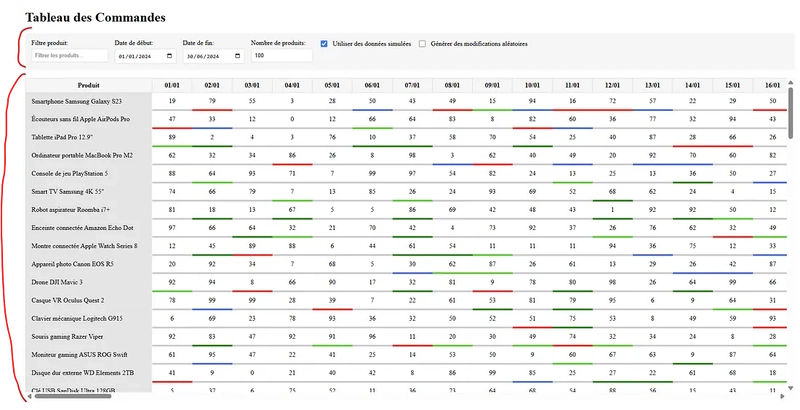Texas lawmakers weigh opening $5B energy fund to geothermal amid attacks on renewables
A Republican-authored proposal in the Texas Legislature seeks to open up state funds aimed at encouraging fossil fuel development to a form of renewable energy. The bill, which passed unanimously out of committee in the Texas House late Wednesday and now heads to the floor for consideration, could provide a runway for state incubation of next-generation geothermal energy, which uses oil and...

A Republican-authored proposal in the Texas Legislature seeks to open up state funds aimed at encouraging fossil fuel development to a form of renewable energy.
The bill, which passed unanimously out of committee in the Texas House late Wednesday and now heads to the floor for consideration, could provide a runway for state incubation of next-generation geothermal energy, which uses oil and gas drilling methods to extract heat from the earth to provide low-carbon, round-the-clock energy.
Along with another bill still in committee, the legislation could also serve as a lifeline for the flagging Texas Energy Fund (TEF), a $5 billion low-interest loan program originally aimed at encouraging more fossil fuel generation.
The fund was created in 2023 to incentivize the building of new gas plants, with a stated aim of shoring up the grid by bringing on flexible power generation that could be turned on and off as needed.
But at least seven companies have withdrawn their applications from the TEF since the beginning of the year, largely citing an inability to procure gas turbines in time to meet the terms of the loan. The fund has so far failed to develop the 10 gigawatts of power it was intended to add to the Texas grid.
Republican lawmakers are now seeking to change two major criteria of the TEF: that projects it covers have capacity to produce at least 100 megawatts (enough to power about 100,000 houses), and a de facto requirement that they be fossil-fuel powered.
The most recent piece of legislation, authored by state Rep. AJ Louderback (R) and voted unanimously out of a Texas House committee Wednesday night, would take a step toward opening up the program to geothermal projects by officially classing them as dispatchable. It now heads to the floor of the House.
Another proposal under discussion would allow the board overseeing TEF to make loans to geothermal projects in the 10- to 100-megawatt range — enough energy to power about 10,000 to 100,000 homes — which would allow the current generation of geothermal projects (which are smaller capacity than gas plants) to apply for funding.
These efforts come amid an attack on wind and solar power by a different faction of Texas Republicans. Over the past two months, the state Senate has passed bills seeking to drastically restrict where wind and solar can be built, and to require every watt of new solar that is brought online to be accompanied by a watt of new gas.
The same evening that Louderback's geothermal legislation passed out of the House State Affairs Committee, members of the panel also narrowly passed another bill, H.B. 3356, which would force wind and solar companies to buy fossil-fuel based power to cover the time periods that they’re not operating.
Critics of these bills argue they will hamstring the Texas economy for the same reason that gas companies are leaving the TEF: There aren't enough gas turbines, or enough interest from utilities in building new gas plants, to meet Texas's skyrocketing energy needs or deliver the power the TEF was meant to incentivize.
A report for the Texas Association of Business found that if just one of those anti-solar bills, H.B. 3356, is passed, it would cost state ratepayers $5 billion, while increasing the threat of rolling blackouts — the kind of outcomes that TEF's creation was theoretically intended to help the state avoid.
Geothermal isn't the only form of dispatchable power state lawmakers want to incentivize. Yet another bill being weighed by the Legislature would make an additional $2 billion available to nuclear developers under similar terms to the TEF.
Because lawmakers excluded battery storage projects — which, along with solar, make up the fastest growing part of the Texas grid — from consideration for the TEF, and because no nuclear projects are anywhere near ready to apply, the fund has in effect amounted to a subsidy for fossil fuels. The timeline for nuclear projects could prove to be an issue for the nuclear proposals as well.
Geothermal advocates, however, argue that power plants that tap the subterranean heat in Texas also offer dispatchable power — and that the energy funds can speed the growth of geothermal in the state, which is emerging as a key hub for the industry.
While Texas doesn't have the red-hot shallow rock or circulating underground geyser systems of the Mountain West or Pacific Rim, recent maps produced by the advocacy group Project InnerSpace show considerable geothermal resources beneath the state.
And Texas also has something perhaps even more important than those resources: a vast and increasingly underutilized oil and gas workforce, whose job skills — from mapping underground reservoirs to drilling and encasing wells — are a close match to geothermal’s needs.
The field also has allies in the Trump administration. Secretary of Energy Chris Wright, a skeptic of renewables and the concept of "clean energy" writ large, has thrown his support behind geothermal.
And President Trump himself, in an Earth Day message largely focused on touting the president's accomplishments in opening up the nation's lands and waters to more logging, fishing, mining and drilling, emphasized the administration's commitment to "next-generation geothermal."











































































